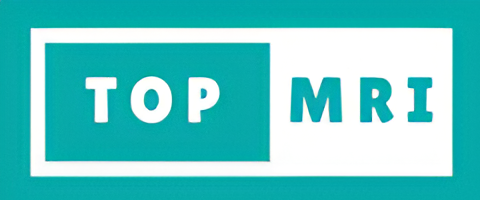
- Home
- Services
- Locations
- MRI Scan
- Greater London Area
- London – Marylebone, W1G 7HE – 3.0 T MRI Scan – £300
- London – Harley Street, W1U 2HX – Open MRI Scan – £500
- Middlesex – Enfield, EN2 8JL – 1.5 T MRI Scan – £300
- West Middlesex – Isleworth, TW7 6AF – 1.5 T MRI Scan – £300
- Surrey – Epsom, KT18 7LX – 1.5 T MRI Scan – £300
- Surrey – Ashford, TW13 3AA – 1.5 T MRI Scan – £300
- Surrey – Guildford, GU2 7XU – 3.0 T MRI Scan – £300
- Kent – Sidcup, Bexley, DA14 6LT – 1.5 T MRI Scan – £300
- North West England
- Manchester – M80 4AN – Open MRI Scan – £500
- Greater Manchester – Manchester, SK8 7NB – 1.5 T MRI Scan – £279
- Greater Manchester – Whythenshaw, M23 9LT – 3.0 T MRI Scan – £300
- Greater Manchester – Stockport, SK2 7JE – 1.5 T MRI Scan – £300
- Cumbria – Cockermouth, CA13 9HT – 1.5 T MRI Scan – £279
- Cumbria – Penrith, CA11 0AH – 1.5 T MRI Scan – £279
- Lancashire – Preston, PR4 0AP – 1.5 T MRI Scan – £279
- Lancashire – Fylde, FY8 1PF – 1.5 T MRI – £300
- North East England
- East Midlands
- East of England
- West Midlands
- South West England
- South East England
- Wales
- Yorkshire and the Humber
- Greater London Area
- CT Scan
- Full Body MRI Scan
- Ultrasound
- MRI Scan
- Patients
- Referrers
- Prices
- 0333 344 1811
info@topmri.com
Kidney Cancer
- Uncategorized
-
Sep 18
- Share post
Kidney Cancer: Symptoms, Causes, Diagnosis, Treatment, and Future Outlook.
Disclaimer:
This blog is for informational purposes only and should not be taken as medical advice. Content is sourced from third parties, and we do not guarantee accuracy or accept any liability for its use. Always consult a qualified healthcare professional for medical guidance.
What is Kidney Cancer?
Kidney cancer, mainly renal cell carcinoma (RCC, 90%), arises in kidney tubules, with subtypes clear cell (70%), papillary, chromophobe. Transitional cell (ureter/pelvis) is 5-10%. In 2025, ~81,610 US cases, median age 64, more in men.
Symptoms
Symptoms include hematuria (50%), flank pain, palpable mass (triad in 10%), fatigue, weight loss, fever, hypertension. Asymptomatic in 50%, found incidentally. Advanced causes bone pain, cough.
Causes
Risk factors include smoking (30%), obesity, hypertension, family history, VHL syndrome, dialysis. Mutations in VHL, MET. In 2025, pollution/genetics are focused.
Diagnosis
Diagnosis uses ultrasound/CT/MRI for mass, biopsy for confirmation, blood/urine tests. Staging TNM. In 2025, AI PET improves staging.
Treatment
Localised: partial/radical nephrectomy (laparoscopic/robotic). Advanced: targeted (sunitinib, pazopanib), immunotherapy (nivolumab + ipilimumab). In 2025, combinations extend survival.
Future Outlook
In 2025, 5-year survival is 76%, 93% localised. Immunotherapy raises advanced to 40%. By 2030, ADCs/AI could achieve 85%.
Sources
The information for kidney cancer is sourced from Cleveland Clinic’s “Kidney Cancer: Symptoms, Signs, Causes & Treatment” for treatment; Mayo Clinic’s “Kidney cancer – Symptoms and causes” for causes; Mayo Clinic’s “Kidney cancer – Diagnosis and treatment” for diagnosis; OncoDaily’s “Kidney Cancer: Symptoms ,Causes, Stages, Diagnosis and Treatment” for stages; Kidney Cancer Association’s “Kidney Cancer Highlights from ASCO 2025” for updates; PMC’s “Kidney Cancer: Current Progress in Treatment” for progress; Kidney Research UK’s “Kidney cancer: symptoms, prognosis, treatment, causes and stages” for prognosis; Fox Chase’s “Kidney Cancer Symptoms You Shouldn’t Ignore” for symptoms; Everyday Health’s “What Is Kidney Cancer? Symptoms, Causes, Diagnosis, Treatment” for overview; Healthline’s “Kidney Cancer: Symptoms, Causes, Diagnosis, and More” for more.